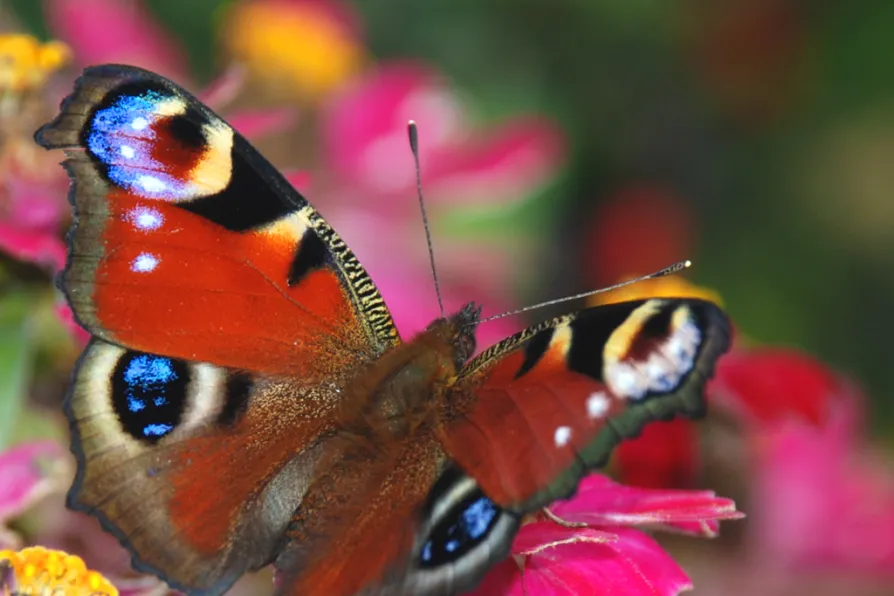Durham Miners’ Association general secretary ALAN MARDGHUM speaks to Ben Chacko ahead of Gala Day 2025


IF YOU drive a car you may well have noticed fewer insects splatted on your windscreen after a summer drive.
It is just one of the indications that British insects are finding it harder and harder to thrive.
Matt Shadlow, chief executive of British insect conservation charity Buglife, explains: “This is part of the wholesale loss of small animals in recent decades.
“The public know about bees and butterflies, but these are just the tips of the iceberg. Moths, hoverflies, wasps, beetles and many other groups are now sparse where once they were abundant.”
The Rothamsted Research Station in Harpenden, Hertfordshire, has been monitoring insect populations using traps all across the country for more than half a century.
A recent study from the station showed that in the west of England, around Hereford, the number of flying insects has fallen significantly since the 1970s.
Another report into larger moths published in collaboration with the charity Butterfly Conservation showed a fall of insects by 40 per cent in the south of England over the past 40 years.
The most recent RSPB State of Nature report, which brings together findings from 50 wildlife and conservation organisations, suggests there has been a 59 per cent decline in insects in Britain since 1970.
Butterflies and moths are among the worst hit. For example, the number of widespread butterfly species fell by 58 per cent on farmed land in England between 2000 and 2009.
These British numbers reflect what is happening with insects all over the world. The first global scientific review published in the journal Biological Conservation says intensive agriculture is the main driver of the declines, particularly the heavy use of pesticides.
Urbanisation and climate change are other significant factors. The review concluded that the world’s insects are hurtling towards extinction, threatening a “catastrophic collapse of nature’s ecosystems.”
More than 40 per cent of world insect species are declining and a third are endangered, the review found. The rate of extinction is eight times faster than that of mammals, birds and reptiles.
Insects are by far the most varied and abundant animals in the world. All the world’s insects weigh 17 times the total weight of all the humans.
Insects are essential for the proper functioning of all ecosystems as food for other creatures, pollinators and recyclers of nutrients.
Unless we change our ways of producing food, insects as a whole will go down the path of extinction in a few decades. The repercussions this will have for the planet’s ecosystems will be catastrophic.
If insect species losses cannot be halted, this will have catastrophic consequences for both the planet’s ecosystems and for the survival of mankind,” said Francisco Sanchez-Bayo, from the University of Sydney, Australia, who wrote the review with Kris Wyckhuys from the China Academy of Agricultural Sciences in Beijing.
The two authors report a shocking 2.5 per cent rate of annual loss over the last 25 to 30 years.
“It is very rapid. In 10 years you will have a quarter less, in 50 years only half left and in 100 years you will have none.”
One of the biggest impacts of insect loss is on the many birds, reptiles, amphibians and fish that eat insects. If this food source is taken away, all these animals starve to death.
Worldwide there are more than 350,000 species of beetle and many are thought to have declined, especially dung beetles.
But there are also big gaps in knowledge, with very little known about many flies, ants, aphids, shield bugs and crickets. Experts say there is no reason to think they are faring any better than the studied species.
“It is clear that the main cause of the decline is agricultural intensification. We eliminate the trees and shrubs that normally surround fields and provide shelter. Those bare fields are then treated with synthetic fertilisers and pesticides.”
This demise of insects appears to have started at the start of the 20th century, accelerated during the 1950s and 1960s and reached alarming proportions over the last two decades.
New classes of insecticides introduced in the last 20 years, including neonicotinoids, have been particularly damaging as they are used routinely and persist in the environment sterilising the soil and killing all the grubs.
The world must change the way it produces food, report author Sanchez-Bayo said, noting that organic farms had more insects and that occasional pesticide use in the past did not cause the level of decline seen in recent decades.
“Industrial-scale, intensive agriculture is the one that is killing the ecosystems,” he said.
Other scientists agree that it is becoming clear that insect losses are now a serious global problem.
“The evidence all points in the same direction,” said Professor Dave Goulson at the University of Sussex in Britain.
“It should be of huge concern to all of us, for insects are at the heart of every food web, they pollinate the large majority of plant species, keep the soil healthy, recycle nutrients, control pests, and much more. Love them or loathe them, we humans cannot survive without insects.”
Sanchez-Bayo said he had recently witnessed proof of the decline in insects himself. A recent family holiday involved a 400-mile (700km) drive across rural Australia, but he had not once had to clean the windscreen, he said.
“Years ago you had to do this constantly.”



















